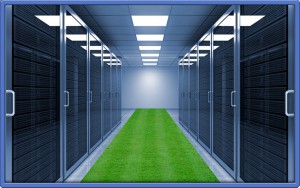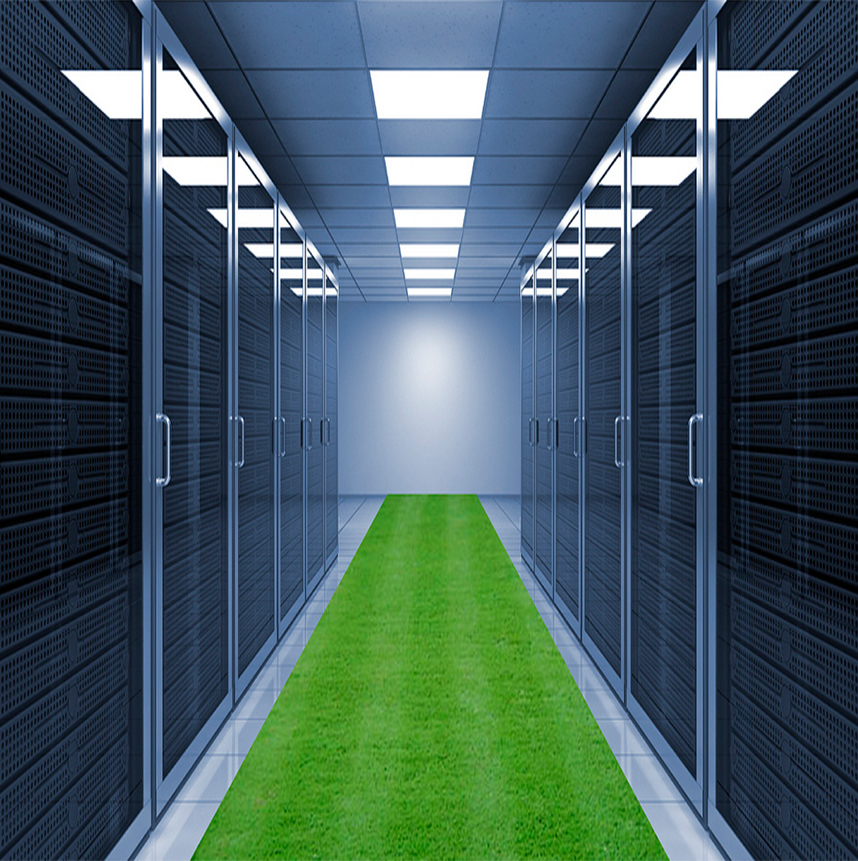 More businesses than ever before are now deciding to use Data Centers (DCs) to host their servers. Servers are crucial pieces of equipment. They are the heart of any business’s computer network, often loaded with unique, custom software and programs, and holding sensitive and critical data that a business needs in order to operate. So why do companies let something so vital to their survival out of their sight? Why choose virtual servers over conventional?
More businesses than ever before are now deciding to use Data Centers (DCs) to host their servers. Servers are crucial pieces of equipment. They are the heart of any business’s computer network, often loaded with unique, custom software and programs, and holding sensitive and critical data that a business needs in order to operate. So why do companies let something so vital to their survival out of their sight? Why choose virtual servers over conventional?
Is it Safe?
 The first thing that most companies worry about in terms of servers is security. It’s not the main reason that businesses elect to go down the outsourcing route, but when they are considering doing so, it’s the first thing business owners and managers think about. People are often mistaken in thinking that the first consideration is how much a data center will charge them. In reality cost is not the first consideration – security is – because if security cannot be guaranteed, then it’s a non-starter.
The first thing that most companies worry about in terms of servers is security. It’s not the main reason that businesses elect to go down the outsourcing route, but when they are considering doing so, it’s the first thing business owners and managers think about. People are often mistaken in thinking that the first consideration is how much a data center will charge them. In reality cost is not the first consideration – security is – because if security cannot be guaranteed, then it’s a non-starter.
The reality is however, that a data center’s security setup, both in terms of physical and non-physical, (hackers, viruses and malware etc.), is far superior to that of the clients’. While many businesses have held back from using the cloud in the past, due to perceived security, this is no longer the case and many businesses are turning to having their entire IT infrastructure hosted in the cloud – or in other words, at a data center.
Data centers are often manned 24/7, have full disaster recovery plans in place and utilize server monitoring software in order to ensure that all of the data is as protected. However, depending which platform you choose (IaaS; PaaS), you can also use your own monitoring software provider as you usually would.
The three major platforms for cloud computing are:
- SaaS (Software-as-a-Service)
- IaaS (Infrastructure-as-a-Service)
- PaaS (Platform-as-a-Service)
While SaaS has been by far the most popular, with many companies choosing to host software in the cloud, such as office applications, both IaaS and PaaS are rising in popularity now that the cloud is more established in the consciousness of the corporation. Although it’s commonly thought that cloud is a relatively new technology, it’s actually not if you think in terms of how long Gmail (which is a SaaS cloud service) has been around.
What’s the comparative cost – Conventional vs. Virtual?
 Having first established that using remote data centers for hosting servers actually often enhances security, the next consideration is what are the financial benefits? Using a data center is generally paid for on a monthly basis and so this means, not only are they easy to manage financially, they are also highly flexible and scalable.
Having first established that using remote data centers for hosting servers actually often enhances security, the next consideration is what are the financial benefits? Using a data center is generally paid for on a monthly basis and so this means, not only are they easy to manage financially, they are also highly flexible and scalable.
For smaller businesses, the cost of using a data center for its IT infrastructure effectively allows it to play on a level playing field alongside larger businesses. This is due to the massive reduction in capital outlay, as even though workstations will still be required on the premises, these can be ‘thin clients’ which don’t require much in the way of power. At a push, if money’s a real object for start-ups, older machines can also be used (although preferably with a supported operating system).
Consolidation
 Virtual servers often utilize less capacity than their conventional counterparts to store the same amount of data. Most conventional servers never use their full capacity. With a virtual server, the capacity allocated is matched to what is needed in real time, using hypervisor technology
Virtual servers often utilize less capacity than their conventional counterparts to store the same amount of data. Most conventional servers never use their full capacity. With a virtual server, the capacity allocated is matched to what is needed in real time, using hypervisor technology![]() . So capacity-wise, the virtual server is much more efficient, and it also means that should any piece of hardware fail, it’s a simple matter to route the server onto another part of the network. In fact, as data centers are in effect large networks using robust, high-end servers in clusters, it’s unlikely that you’d even notice if the server was to go down.
. So capacity-wise, the virtual server is much more efficient, and it also means that should any piece of hardware fail, it’s a simple matter to route the server onto another part of the network. In fact, as data centers are in effect large networks using robust, high-end servers in clusters, it’s unlikely that you’d even notice if the server was to go down.
Not having a conventional server on the premises means that there is also a space saving aspect, plus the fact that there are no special environmental requirements (clean atmosphere, temperature etc.) necessitated. Add to this the opportunity to market the company as greener and data centers add up to ensure that their use can become a valuable, cost-effective asset to the business.
Scalability
 Scalability is a key consideration. When companies need to expand their operations and their IT infrastructure, it is both time-consuming, cash consumptive, and can involve a time delay too. Not to mention the additional cost and aggravation of having to update a physically wired network. In addition to all this, the cash needed can dent cash flow too. However, data centers always have extra capacity, and for them, affording clients the ability to upscale is no more difficult than having to flip a few switches.
Scalability is a key consideration. When companies need to expand their operations and their IT infrastructure, it is both time-consuming, cash consumptive, and can involve a time delay too. Not to mention the additional cost and aggravation of having to update a physically wired network. In addition to all this, the cash needed can dent cash flow too. However, data centers always have extra capacity, and for them, affording clients the ability to upscale is no more difficult than having to flip a few switches.
Continue to Part 2 of Why Choose a Data Center to Host your Servers? >>
http://www.flickr.com/photos/traftery/4773457853/ Photo credit: Tom Raftery / Foter.com / CC BY-NC-SA
